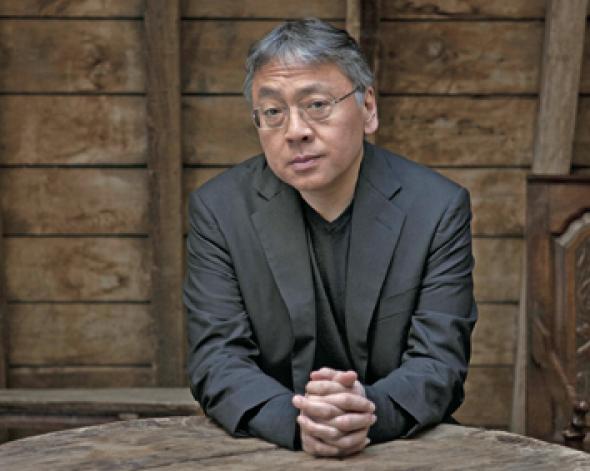The Swedish Academy announced Thursday morning that this year’s Nobel Prize in literature has been awarded to the English author Kazuo Ishiguro. “In novels of great emotional force,” the committee said in a brief statement, Ishiguro “has uncovered the abyss beneath our illusory sense of connection with the world.”
Ishiguro is best known for his third novel, The Remains of the Day, which won the Booker Prize in 1989 and was turned into a movie starring Anthony Hopkins and Emma Thompson. (He later said he “more or less” wrote the entire book in four weeks.) Never Let Me Go, a tense coming-of-age story set in the English countryside that only later reveals itself to be something entirely different, was also turned into a well-received film in 2010. He has borrowed tropes from science fiction, detective novels, and other genres over the course of his career; his most recent novel, The Buried Giant, was a version of a fantasy story, complete with dragons and ogres. “For all that The Buried Giant clothes itself in the armor of chivalric romance and fantasy,” wrote Slate’s Mark O’Connell, “it is also subtly using these formal structures to subvert from within the kind of national mythologies that are so often built around them.”
Ishiguro was born in Nagasaki, Japan, in 1954 and moved to England with his family when he was 5 years old. His first novel, the unsettling A Pale View of Hills, was set in postwar Nagasaki, though he had not yet returned to Japan since his family left. That book won an award from Britain’s Royal Society of Literature in 1982, and since then Ishiguro has received a steady stream of literary prizes and nominations, including four Man Booker nominations and the Whitbread Prize. He was published in Granta’s decennial Best Young British Novelists issues in 1983 and 1993.
Especially in his early novels, Ishiguro’s characters use euphemisms, repression, and politeness to distance themselves from pain and responsibility; the books often function like mysteries in which the reader slowly realizes the truth the narrators cannot bring themselves to say. In The Remains of the Day, for example, the butler narrator’s unflagging loyalty to his master is slowly revealed to be papering over a moral monstrosity. Though his stories are often “small,” they are often set during or just after major historical events, and suggest the way entire societies can be complicit in horror—the way “the marginalized are not exempt from doing their own marginalization,” as Margaret Atwood put in a review of Never Let Me Go in Slate.
The Swedish Committee often prefers relatively obscure international writers for the Literature Prize; Bob Dylan’s win last year was seen as an aberration. But Ishiguro is a popular novelist whose books often make best-seller lists in the United States and England. His work is also widely beloved by his fellow writers. In an interview with GQ in 2009, the Japanese novelist Haruki Murakami—himself considered a favorite for the Nobel—called Never Let Me Go his favorite book of the past 50 years.
“I’m trying to work largely through emotions,” Ishiguro told an interviewer in 2015. “I’m just trying to say to readers: ‘Do you think this is how it feels? I think this is how it must feel, to be a person in this kind of situation—do you recognize this?’ And although it’s a modest ambition, I think it’s quite important that people communicate with each other at that level. To say: ‘I think this is what life is like—do you share these feelings? If I put it like this, do you feel those emotions as well?’ ”
